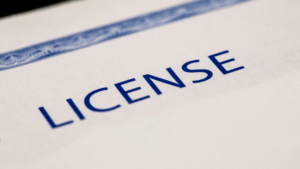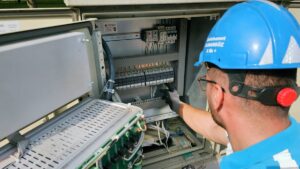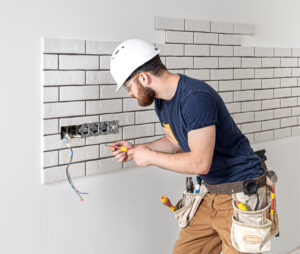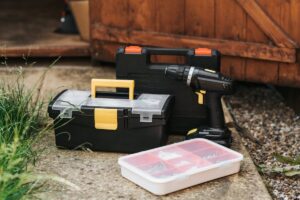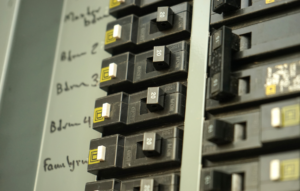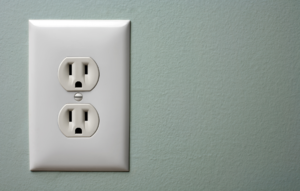Maintaining a property—whether residential or commercial—can seem like a significant investment of time and money. However, the reality is that regular maintenance services are crucial for preventing costly repairs, extending the lifespan of your property’s systems, and ultimately saving you money in the long run. For homeowners and business owners in Alabama and Georgia, partnering with a trusted provider like CMS Maintenance Service ensures that your electrical systems, HVAC, plumbing, and other essential components are kept in top shape, reducing the likelihood of unexpected breakdowns and expenses.
The True Cost of Neglecting Maintenance
When it comes to property maintenance, the old adage “an ounce of prevention is worth a pound of cure” holds true. Neglecting routine maintenance can lead to small issues escalating into major problems, often requiring expensive repairs or replacements.
-
Electrical Systems
- Electrical issues, such as faulty wiring, outdated panels, or overloaded circuits, can be costly and dangerous if left unchecked. Regular electrical maintenance helps identify and fix potential hazards before they lead to fires, power outages, or equipment damage. The cost of regular inspections and minor repairs is significantly lower than the expenses incurred from major electrical failures or fire damage.
-
HVAC Systems
- Your HVAC system is a vital component of your property’s comfort and energy efficiency. Neglecting maintenance can lead to reduced efficiency, higher energy bills, and costly repairs. For example, a dirty filter or clogged ductwork can cause your system to work harder, leading to wear and tear that shortens its lifespan. Regular maintenance, including filter changes, duct cleaning, and system inspections, keeps your HVAC running efficiently, saving you money on energy bills and extending the life of the equipment.
-
Plumbing
- Plumbing issues, such as leaks, clogs, or pipe corrosion, can quickly turn into expensive repairs if not addressed promptly. Regular plumbing maintenance services, such as inspecting for leaks, cleaning drains, and checking water pressure, can prevent small problems from escalating. This not only saves you money on water bills and repair costs but also prevents water damage that could lead to mold growth or structural damage.
-
Roofing and Gutters
- Your roof and gutters play a crucial role in protecting your property from the elements. Regular maintenance, such as cleaning gutters, inspecting shingles, and checking for leaks, can prevent water damage, mold growth, and structural issues. The cost of maintaining your roof and gutters is minimal compared to the expense of repairing or replacing a damaged roof.
-
Appliances and Equipment
- Regular maintenance of appliances and equipment, such as water heaters, electrical panels, and machinery, ensures they operate efficiently and safely. Neglecting maintenance can lead to breakdowns, costly repairs, and even the need for premature replacement. Routine inspections and tune-ups help extend the lifespan of your equipment, saving you money in the long run.
The Financial Benefits of Preventive Maintenance
Preventive maintenance involves regularly scheduled inspections, cleanings, and minor repairs that keep your property’s systems in optimal condition. While this requires an upfront investment, the financial benefits far outweigh the costs.
-
Reduced Repair Costs
- Preventive maintenance helps identify and address potential issues before they turn into major problems. For example, a small electrical issue, such as a loose connection, can be fixed quickly and inexpensively during a routine inspection. However, if left unattended, this minor issue could cause an electrical fire, leading to costly repairs and potential liability. By catching problems early, preventive maintenance reduces the likelihood of expensive repairs.
-
Lower Energy Bills
- Maintaining your property’s systems ensures they operate at peak efficiency, reducing energy consumption and lowering utility bills. For instance, a well-maintained HVAC system uses less energy to heat and cool your property, resulting in significant savings over time. Similarly, regular maintenance of your electrical system, such as tightening connections and cleaning components, ensures efficient operation and reduces energy waste.
-
Extended Lifespan of Systems and Equipment
- Regular maintenance extends the lifespan of your property’s systems and equipment, delaying the need for expensive replacements. For example, a well-maintained HVAC system can last 15-20 years, while a neglected system may need to be replaced after just 10 years. By investing in preventive maintenance, you maximize the value of your systems and equipment, saving money on premature replacements.
-
Increased Property Value
- A well-maintained property is more attractive to potential buyers or tenants, increasing its market value. Regular maintenance ensures your property is in good condition, with no major issues that could deter buyers or decrease the sale price. Additionally, properties with well-maintained systems and equipment are less likely to require significant repairs, making them more appealing to buyers and allowing you to command a higher price.
-
Avoidance of Emergency Repairs
- Emergency repairs are often more expensive than routine maintenance because they typically require immediate attention and may involve after-hours service calls. Preventive maintenance helps avoid these unexpected costs by addressing issues before they become emergencies. For example, regularly inspecting and maintaining your electrical system can prevent power outages or electrical fires that would require costly emergency repairs.
The Role of Maintenance Services in Ensuring Safety
Safety is a critical aspect of property maintenance that should not be overlooked. Neglecting maintenance can lead to dangerous situations, such as electrical fires, carbon monoxide leaks, or structural failures. Regular maintenance services play a vital role in ensuring the safety of your property and its occupants.
-
Electrical Safety
- Regular electrical maintenance is essential for preventing electrical fires, shocks, and other hazards. This includes inspecting wiring, outlets, and panels for signs of wear or damage, testing smoke detectors and carbon monoxide alarms, and ensuring all electrical systems comply with local codes and standards. By prioritizing electrical safety, you protect your property and the people inside it from potentially life-threatening situations.
-
HVAC Safety
- Maintaining your HVAC system is crucial for ensuring safe and healthy indoor air quality. Regular maintenance includes inspecting and cleaning components, checking for gas leaks, and ensuring proper ventilation. This reduces the risk of carbon monoxide poisoning, respiratory issues, and other health concerns associated with poor indoor air quality.
-
Plumbing Safety
- Plumbing maintenance helps prevent leaks, water damage, and mold growth, all of which can pose serious health risks. Regular inspections and repairs also reduce the risk of burst pipes or flooding, which can cause extensive damage to your property and belongings. By keeping your plumbing system in good condition, you protect your property and its occupants from water-related hazards.
-
Structural Safety
- Regular maintenance of your property’s structure, including the roof, foundation, and exterior, is essential for preventing safety hazards. This includes inspecting for cracks, leaks, or other signs of damage, as well as maintaining gutters, downspouts, and drainage systems. Ensuring the structural integrity of your property reduces the risk of accidents, injuries, and costly repairs.
-
Appliance and Equipment Safety
- Maintaining appliances and equipment, such as water heaters, electrical panels, and machinery, is crucial for ensuring safe operation. Regular inspections and tune-ups help identify potential hazards, such as faulty wiring, gas leaks, or malfunctioning components, before they cause accidents or injuries. By prioritizing safety in your maintenance routine, you protect your property and its occupants from harm.
How to Implement a Preventive Maintenance Plan
Implementing a preventive maintenance plan is the key to maximizing the benefits of regular maintenance services. Here’s how to create a plan that works for your property:
-
Assess Your Property’s Needs
- Start by assessing your property’s systems and equipment to determine what maintenance tasks are needed and how often they should be performed. Consider factors such as the age and condition of your systems, manufacturer recommendations, and local code requirements. This will help you create a customized maintenance plan that addresses the unique needs of your property.
-
Schedule Regular Inspections
- Regular inspections are the cornerstone of preventive maintenance. Schedule inspections at least once a year for major systems such as electrical, HVAC, plumbing, and roofing. For high-use systems or older equipment, more frequent inspections may be necessary. Inspections help identify potential issues before they become major problems, allowing you to address them proactively.
-
Perform Routine Maintenance Tasks
- In addition to inspections, perform routine maintenance tasks such as cleaning, lubricating, and testing systems and equipment. These tasks help ensure optimal performance and prevent wear and tear that could lead to breakdowns. For example, regularly changing HVAC filters, cleaning gutters, and checking electrical connections are simple tasks that can have a big impact on your property’s longevity and efficiency.
-
Keep Detailed Records
- Maintain detailed records of all maintenance activities, including inspections, repairs, and replacements. This documentation helps you track the condition of your systems and equipment, identify patterns of wear or recurring issues, and plan for future maintenance needs. Detailed records also provide valuable information in the event of an insurance claim or property sale.
-
Partner with a Professional Maintenance Service Provider
- Working with a professional maintenance service provider like CMS Maintenance Service ensures that your property receives expert care and attention. Professional providers have the experience, tools, and knowledge to perform thorough inspections, identify potential issues, and carry out necessary repairs or maintenance tasks. Partnering with a trusted provider gives you peace of mind knowing that your property is in good hands.
-
Plan for Future Upgrades
- As part of your preventive maintenance plan, consider planning for future upgrades or replacements of systems and equipment. While regular maintenance can extend the lifespan of your systems, eventually, they will need to be upgraded or replaced to maintain efficiency and safety. Planning for these upgrades in advance allows you to budget for them and avoid unexpected expenses.
Conclusion
Investing in regular maintenance services is one of the smartest financial decisions you can make as a property owner. By prioritizing preventive maintenance, you reduce the risk of costly repairs, lower your energy bills, extend the lifespan of your systems and equipment, and ensure the safety of your property and its occupants. CMS Maintenance Service is here to help you develop and implement a customized maintenance plan that meets your needs and keeps your property in top condition for years to come.


